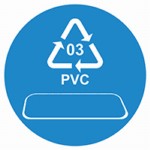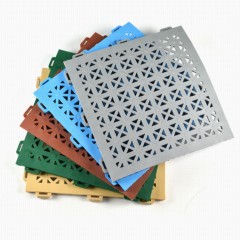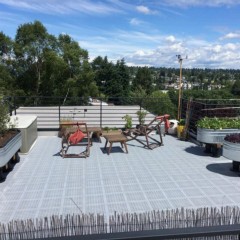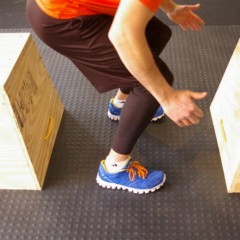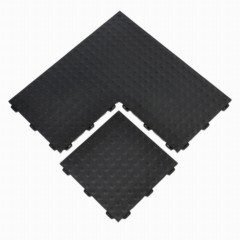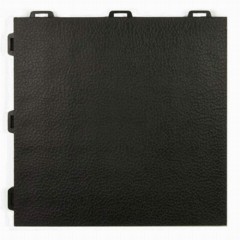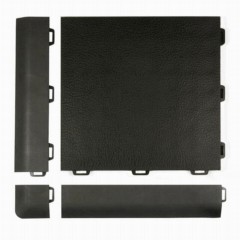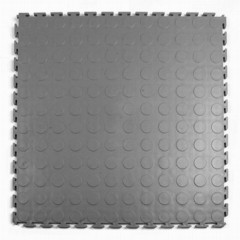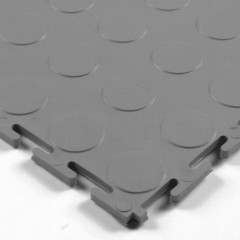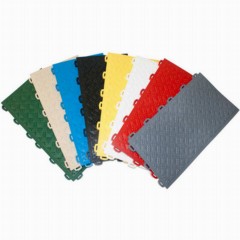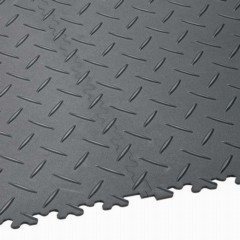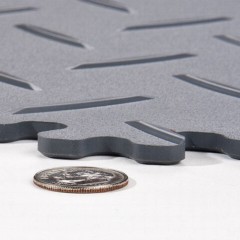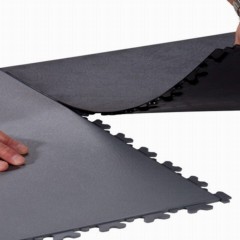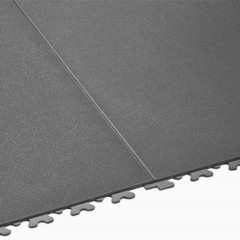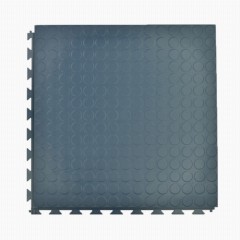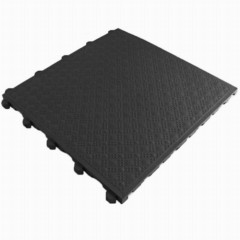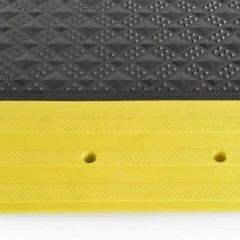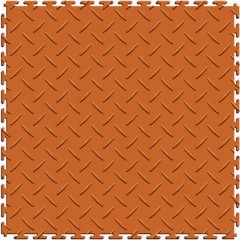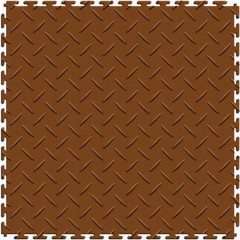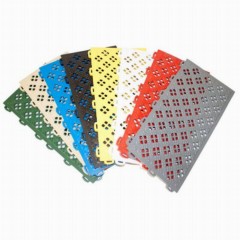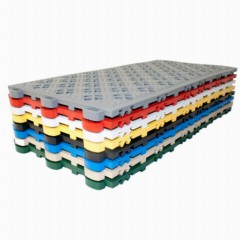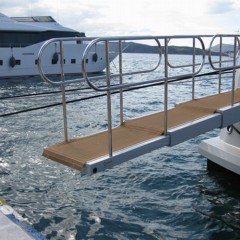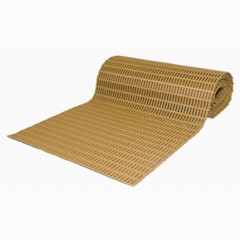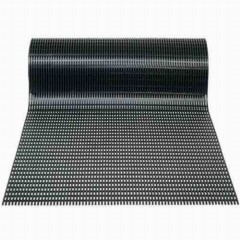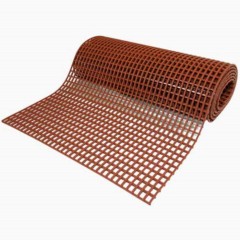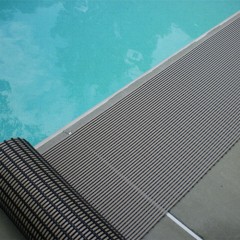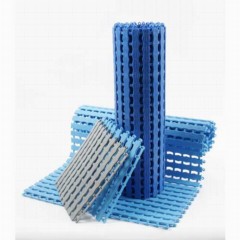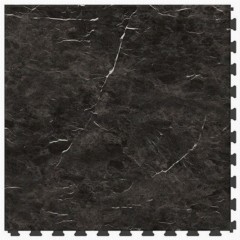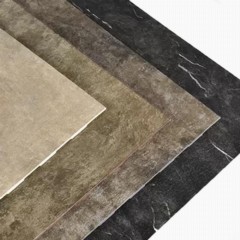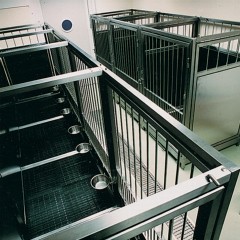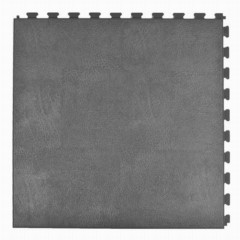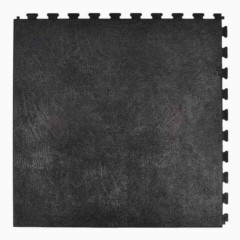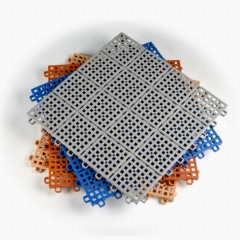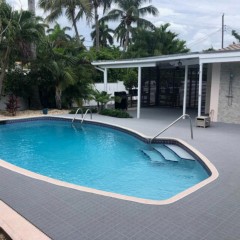PVC Flooring Options
When you need a flooring option that offers a mixture of cushioning, colorful designs, and traction in wet conditions, PVC flooring is an ideal selection.
With a PVC floor matting roll or tile, you can cover a space quickly as a DIY installation job. Our PVC flooring products have multiple use cases while delivering benefits that work in wet or dry conditions. Some PVC matting even works in an outdoor location. At Greatmats, we offer all of these options and more.
Types of PVC Tiles & Mats for Floors
You can select among a couple of different PVC plastic formats, depending on which one fits your needs.
- Tiles: Individual tiles often are 12x12 inches in size, making them easy to handle. They have an interlocking edge design so that you can do the installation yourself without glue.
- Matting rolls: Because PVC flooring is flexible in nature, it’s easy to roll out when used and easy to roll up for storage. It’s available in widths of 2 to 4 feet and lengths up to 84 feet.
Benefits of PVC Flooring Rolls & Tiles
PVC is one of the most versatile flooring options that Greatmats carries, as it offers multiple benefits.
- Durability
- Anti-fatigue
- Anti-slip
- Flexibility
- Lightweight
- Colorful designs
- Textured surface
- Perforated
- Simple installation
Compared to many other types of textured and colored flooring, our PVC flooring offers great value.
Where to Use PVC Flooring Tiles or Rolls
Because of the versatility this flooring offers, you can use matting rolls and tiles in multiple locations.
- Home: Use tiles in a basement, playroom, garage, mudroom, or around a pool.
- Outdoor: Use rolls along a sidewalk where people must wait in line or around an outdoor pool.
- Gym: Use tiles in a commercial or home gym for aerobic workouts, for noise absorption, or for a comfortable subfloor.
- Garage: Use thin tiles in a location where you need resistance to oils, chemicals, and impacts.
- Warehouse: Use tiles with a textured pattern to generate good traction in dry or damp conditions.
- Industrial settings: Use thin tiles that are resistant to oils and chemicals and perforated rolls to allow water to flow away.
- Retail: Use tiles or rolls in areas where employees must stand for long periods, providing anti-fatigue benefits.
- Public pool: Use perforated rolls to provide anti-slip capabilities near splashed water from pools, saunas, hot tubs, and shower areas.
- Boat: Use UV-treated tiles to line the base of the boat with a highly durable material.
- Dance: Use tiles to create a subfloor for cushioning underneath a thin dance floor.
PVC Flooring Q&A
What is the difference between PVC and vinyl floor tiles?
Vinyl is a type of PVC. PVC works for flooring but also appears in pipes, electric cables, and clothing. Vinyl is available as flooring, too, but it also appears in building and construction materials.
What are the pros and cons of PVC flooring?
The
benefits of flooring made of PVC include impressive durability, waterproof design, textured surfaces, affordability, and multiple design options. Some cons of using PVC as flooring include the possibility of punctures, no ability to repair damage to it, and some VOC emissions.
Is PVC flooring good for gyms?
Using
PVC as a gym flooring is a great idea because it absorbs shock and noise. It provides a softer feel to protect the lower body joints of athletes than rubber, while also carrying anti-slip capabilities. It’s waterproof, so it stands up to sweat and spills of water and is easy to clean. PVC tiles can also be installed over carpeting.
What qualities should you look for in PVC warehouse flooring?
Because of its durability, using
PVC as warehouse flooring is a great idea, as it can stand up to foot and wheeled traffic. Look for PVC with a textured surface, slip resistance, and perforated materials in areas with excess water. Use thinner tiles in areas where cart and vehicle traffic are common and use thicker, cushioned tiles where people will be standing for long periods of time.
Is PVC considered plastic?
PVC is a high-strength thermoplastic material. In addition to flooring, it is widely used in applications such as pipes, medical devices, and wire and cable insulation … the list is endless. It is the world's third-most widely produced synthetic plastic polymer, according to
Omnexus.

1 reviews •2 Colors
$7571 /Carton You Save 20%$3.64/sqftShop$2736 /Tile You Save 20%$9.88/sqftShips Out in 1-3 Working Days SustainableShop$9117 /Carton You Save 19%$3.96/sqftShop$1292 /Tile You Save 19%$9.29/sqftShips Out in 1-3 Working DaysShop$1,28627 /Roll You Save 15%$19.49/sqftShop$53714 /Roll You Save 19%$8.14/sqftShop$99742 /Roll You Save 14%$15.11/sqftShop$82314 /Roll You Save 15%$12.47/sqftShop$7738 /Carton You Save 20%$4.69/sqftShop$82317 /Roll You Save 15%$12.47/sqftShop$1,20034 /Roll You Save 15%$12.12/sqftShop$1,56609 /Roll You Save 15%$11.86/sqftShop$5746 /Carton You Save 19%$3.48/sqftShop$389 /Tile You Save 40%$4.23/sqftShips Out in 1-3 Working DaysShop
